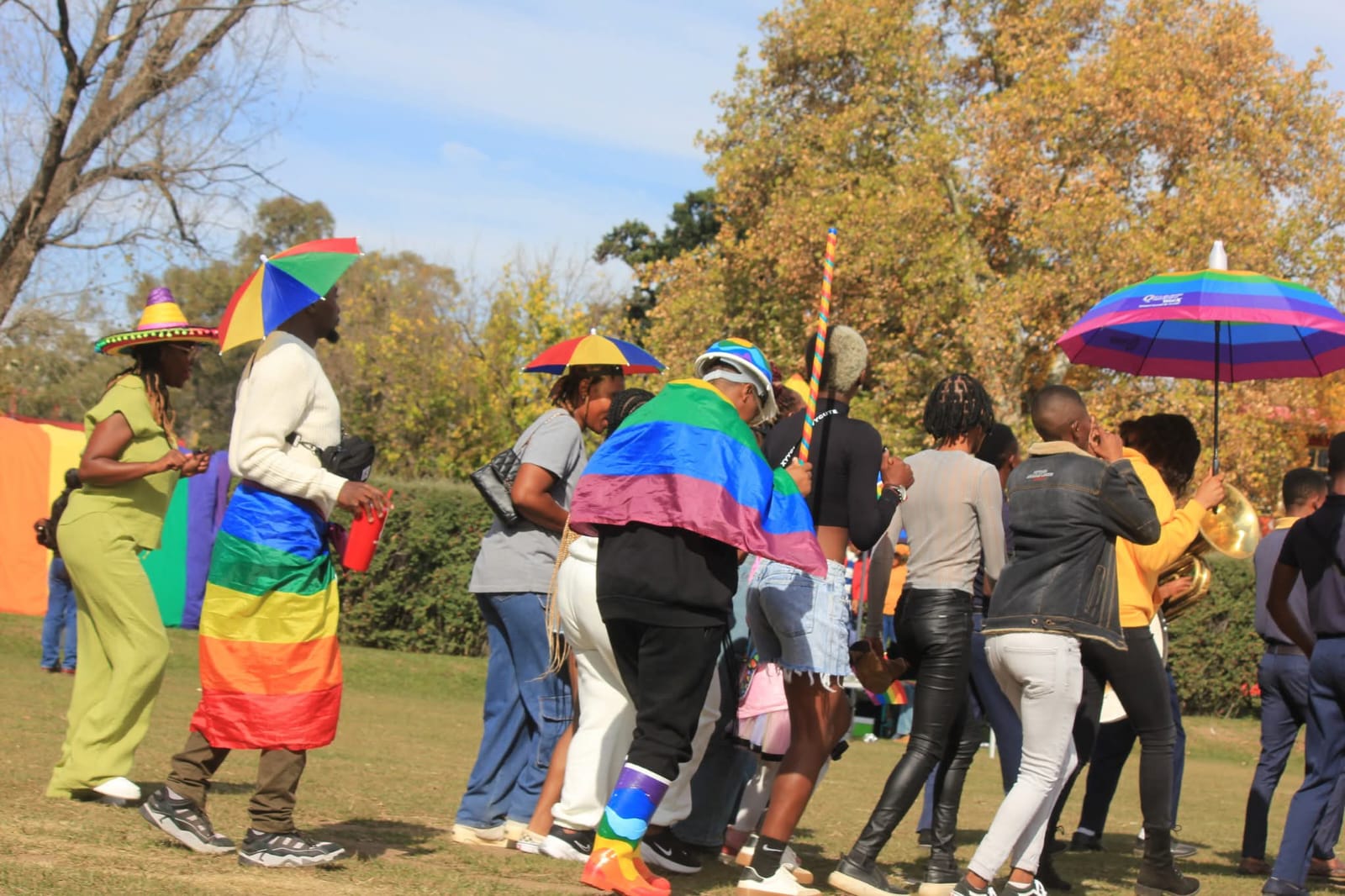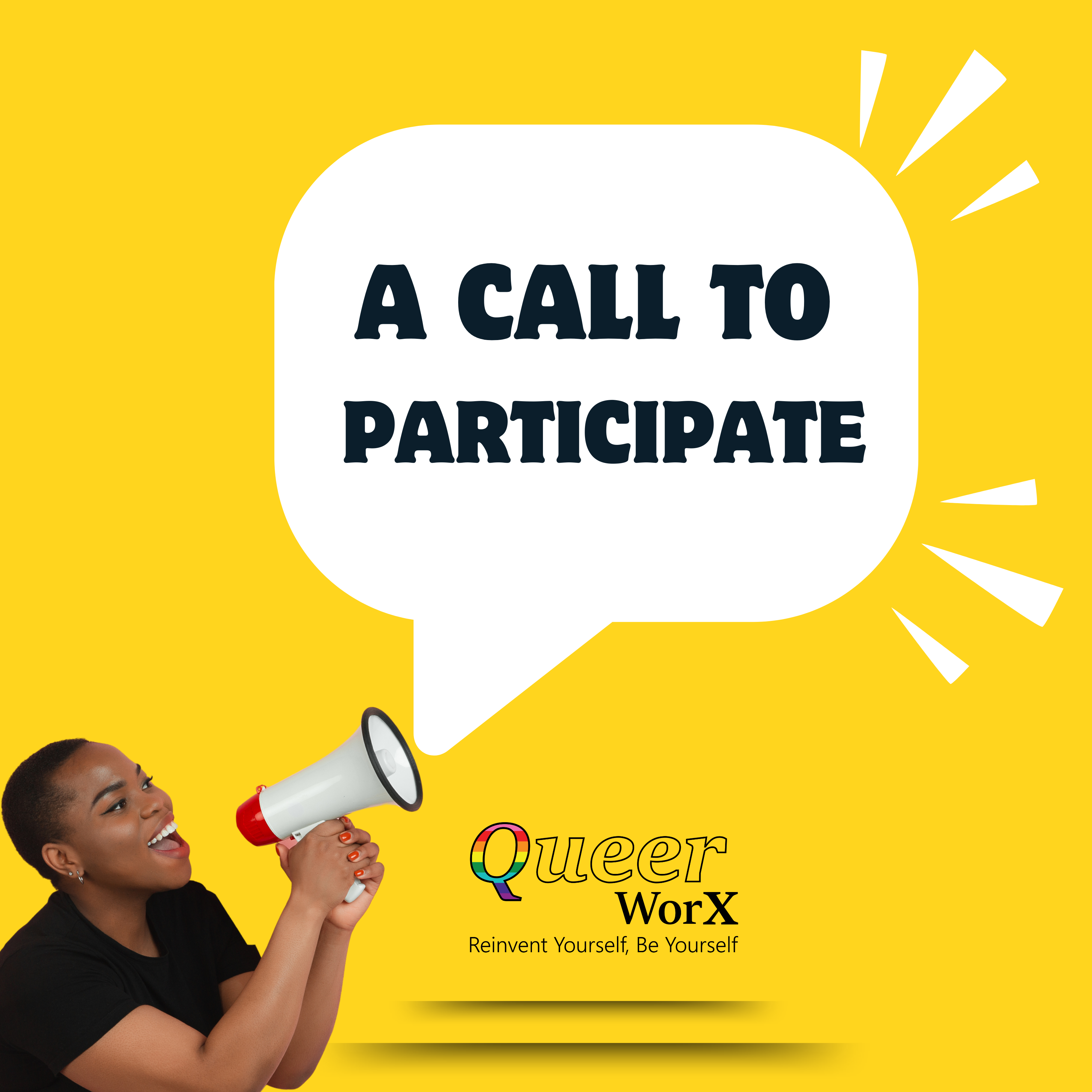
being among those like me
I didn’t know what to expect. It was 2015, and I had only recently started using the word queer to describe myself at least in my head. Saying it out loud still felt like pulling a thread that might unravel everything.
But that May, something stirred in the city. Word was going around about a small gathering in Maseru to mark IDAHOT the International Day Against Homophobia, Transphobia, and Biphobia. It wasn’t on the news. It wasn’t in the papers. But in WhatsApp groups, inboxes, and whispered conversations, the message was clear: We’re meeting. We’re visible. We’re enough.
I almost didn’t go. I told myself it was just a political event. Just a speech and maybe a banner. But the truth was, I was afraid. Not of the police, not of the public but of what it would feel like to see people like me, living boldly. I worried that once I saw them, I wouldn’t be able to go back to pretending.
But I went anyway.
The Garden was huge but it was just a few of us, but we were loud. The event took place in a tucked-away garden near the city centre. There were maybe 40 of us some in jeans and hoodies, others in bright fabrics and bold lipstick. A few stood quietly at the back, hands in pockets, watching. I was one of them.
There was no big stage. No loud music. But there was power in the air in the way we said each other’s names with care. In the way people read poems, spoke truths, shared tears. Someone stood up and said: “We are not what they call us. We are who we say we are.” I wanted to believe it.
When the protest becomes a celebration.Later, after the formal speeches and silent moments, someone played music on a speaker. First, a classic Afropop track. Then Beyoncé. And then something shifted.
People started dancing. At first, cautiously, as if the joy needed permission. Then, freely. Fully. One person pulled out a small rainbow flag and waved it like a cape. Another started dancing for a straight passing man. I stood there, laughing for the first time in weeks. Something cracked open.
It wasn’t just an event. It was a mirror. A glimpse of a life I hadn’t dared to imagine yet. A life where I could dance without looking over my shoulder. A life where I wasn’t alone.
IDAHOT changed my life completely, up to this day I am whole. No newspaper covered what happened that day. No politician tweeted about it. But for me, IDAHOT 2017 was the day I stopped calling my queerness a “phase” in prayer. It was the day I realized visibility wasn’t about rainbow outfits or public declarations. It was about showing up for myself, and for others.
That day, I found people who didn’t ask me to shrink. I found language for my feelings. I found pride not the event, the feeling.
Now, every May 17, I light a candle, play the songs we danced to, and remind myself: you are not the only one. You never were.
Makhethe is a communicator and creative with a passion for storytelling and connection. I studied Mass Communication and I’m currently pursuing Professional Communication, because I believe communication shapes how we see ourselves and how others see us.
I’m also a YALI Civic Leadership alumni and I co-founded PeakFluence ADgency, a space where I explore fresh ideas in advertising and creativity. At Queer WorX, I bring my love for communication and media to support the work we do in building community and sharing stories that matter.

